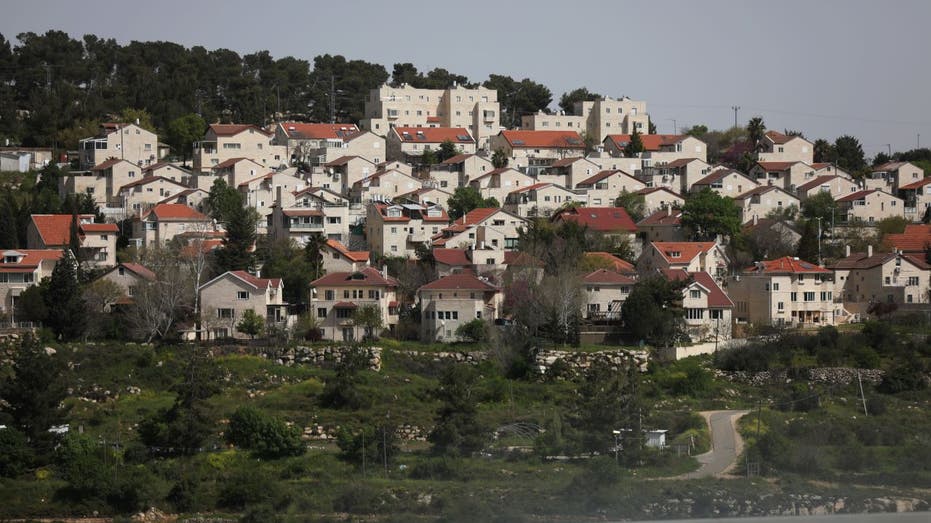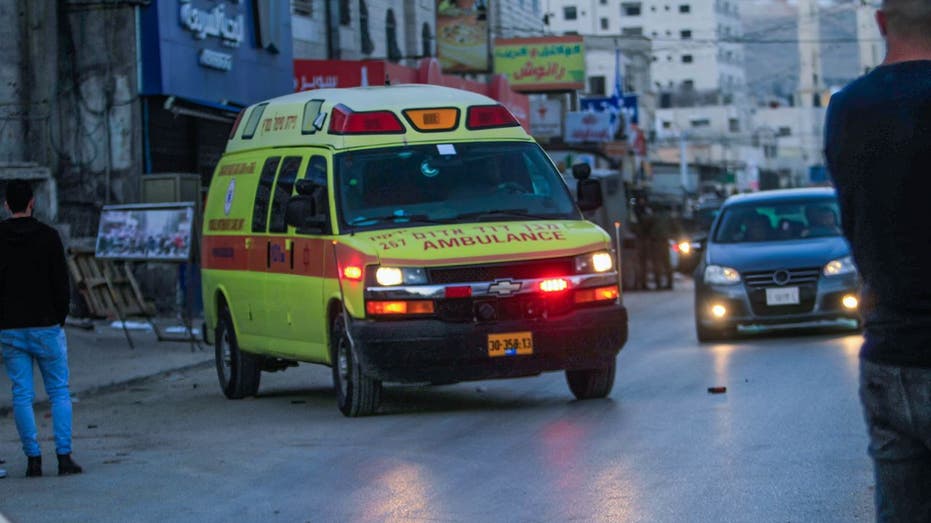Biden admin weighs labels for products made by Israeli settlers in West Bank: report
Biden's reported plan to require products for Israeli settler-made goods from the West Bank would revert to a pre-Trump administration standard
Israel braces for potential Iranian attack
Former Trump Deputy National Security Adviser Victoria Coates analyzes the situation in Israel and Gaza on The Evening Edit.
The Biden administration is considering requiring labels on imported goods made by Israeli settlers living in the West Bank, according to a report by the Financial Times citing U.S. officials familiar with the plan.
According to the report, the Biden administration hasn't determined the timing for the move or issued its final approval for the policy – though it almost announced it last month following the announcement of a large land seizure in the West Bank by Israel.
The administration reportedly views the label requirement as a means of ratcheting up pressure on Israel to tamp down violence by settlers in the West Bank, as well as to show frustration with Prime Minister Benjamin Netanyahu's government amid Israel's war with Hamas in Gaza.
The FT reported that the labeling policy, if it's approved and implemented, would come as a reversal of a 2020 policy advanced by the Trump administration that required goods made in the West Bank be labeled as "Made in Israel."
BIDEN SANCTIONS ISRAELI SETTLERS IN WEST BANK AFTER SHOOTING OF US TEEN

The Biden administration is considering a return to labeling rules that require products made by Israeli settlers in the West Bank to be labeled as being from the West Bank instead of Israel. (Photo by Wisam Hashlamoun/Anadolu via Getty Images / Getty Images)
The Trump administration's policy itself was a reversal of a prior U.S. policy to label products made in the West Bank as being from there, rather than Israel. Prior to the Trump-era change, the Obama administration in 2016 reiterated the West Bank labeling requirements and noted that fines could be issued for non-compliance.
If the Biden administration moves forward with the policy, the U.S. would join the European Union in labeling goods made by Israeli settlers in the contested West Bank as being from the West Bank rather than Israel. Israel opposes such labeling policies.
The State Department did not immediately respond to a request for comment.

Israel and the Palestinian Authority share authority over the West Bank and East Jerusalem. - A Magen David Adom ambulance transports the body of the Palestinian who was killed during an arrest by an Israeli soldier in Hawara, West Bank. (Photo by Nasser Ishtayeh/SOPA Images/LightRocket via Getty Images / Getty Images)
Israel took control of the West Bank and Jerusalem during the Six-Day War of 1967, when Israeli forces ousted the Jordanian military amid a war that also involved Egypt, Syria, Iraq and Lebanon fighting against Israel. It has played a pivotal role in the ongoing Israeli-Palestinian conflict in the decades since.
Palestinians view the West Bank as being illegally occupied by Israel and envision it as being a crucial part of a future state. While settlements are regarded as illegal by the international community, Israel disputes that and argues the settlements are legal.
ISRAEL PLANS TO BUILD 3,300 HOMES IN THE WEST BANK

Israel's war with Hamas in Gaza has strained the country's diplomatic relations with the Biden administration. (Photo by Ilia Yefimovich/picture alliance via Getty Images / Getty Images)
The Israeli government and the Palestinian Authority currently share the administration of the West Bank under the Oslo Accords. The Palestinian Authority controls what's known as Area A, while it shares control of Area B with Israel and the Israeli government controls Area C and East Jerusalem.
Statistics from the Israeli government indicate that there are over 460,000 settlers living in the West Bank, with a further 230,000 settlers in East Jerusalem.
GET FOX BUSINESS ON THE GO BY CLICKING HERE
Land swaps involving tracts of contested land in the West Bank and East Jerusalem have been suggested as being part of an eventual peace plan between Israelis and Palestinians, although such a plan hasn't been reached.




















